Recommended 3D cameras suitable for different industries.
3D cameras allow you to capture images in three dimensions, just like our eyes see the world. It's like stepping into a whole new dimension! Imagine being able to share your photos with friends and family and have them feel like they're actually part of the image. It's a mind-blowing experience, trust me.
But here's the thing, not all 3D cameras are created equal. You need to find the best one for your needs. Look for a dynamic range camera that uses dual lenses and depth sensors to mimic the way our eyes see. This will give you the most realistic and immersive 3D images.
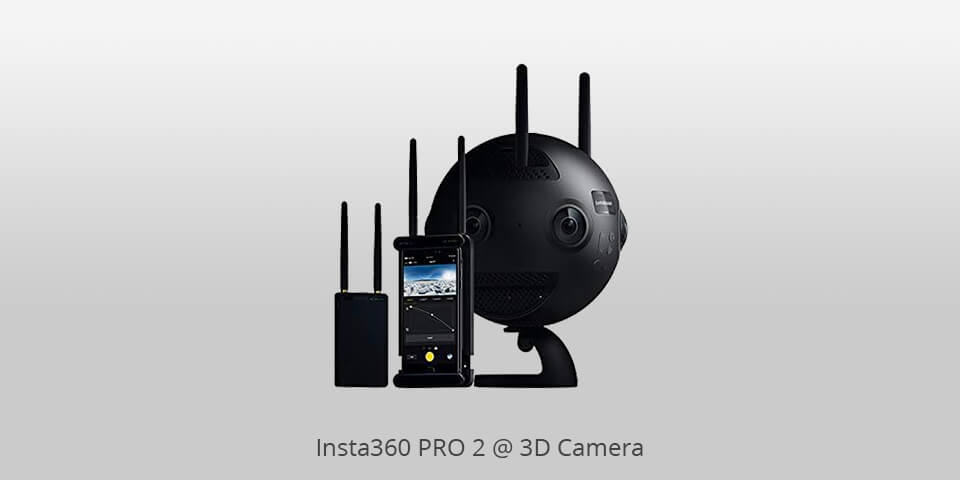
Sensor: 1/2.3" CCD | Resolution: 10-10.2MP | Maximum aperture: f/2.4 | Screen type: 2" LCD | Video: 8K
One of the standout features of the PRO 2 is its incredible stabilization. It uses a system called FlowState, which tracks motion on nine axes and automatically stabilizes the footage through software. This means you don't need a gimbal for most shots, saving you time and effort during shoots.
Another great advantage is the in-camera HDR feature. It really enhances the quality of your photos and videos, giving them a more natural look. Plus, this 3D digital camera can capture stunning 8K 2D footage and even livestream it, which is perfect for vloggers and professionals who want to take their content to the next level.
While PRO 2 has improved the post-production process by creating low-res proxy files for editing, some users have reported occasional issues with stitching and rendering. It's not a major problem, but it's worth mentioning.
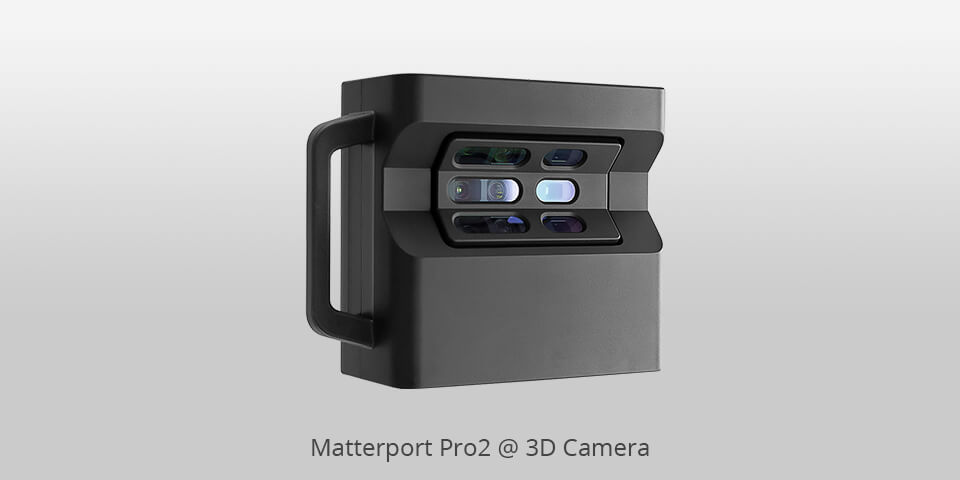
Sensor: 1/2.3" CCD | Resolution: 16MP | Maximum aperture: f/2 | Screen type: 2" LCD | Video: 4K
The Matterport Pro2 3D camera is a powerful tool that can capture both 2D photography and 3D data. This means you can create virtual tours, floor plans, and even VR experiences. It's faster than 3D laser scanning and more comprehensive than handheld scanners, giving you a complete and detailed output.
With its fast capture speed and highly accurate scans, it's a reliable tool for capturing indoor spaces like houses, apartments, hotels, and commercial buildings.
While the Matterport Pro2 is a fantastic tool for many applications, it's crucial to consider your specific needs and budget before making a purchase. If you have a large project, this camera may be worth the investment, but if you're looking for a quick scan for an online listing or VR, there might be better options available.
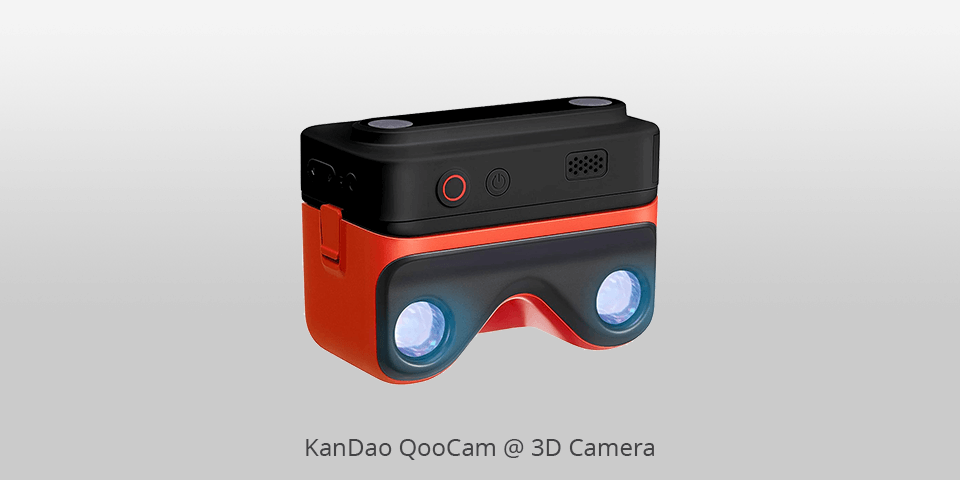
Sensor: 1/2.3" CCD | Resolution: 12MP | Maximum aperture: f/1.8 | Screen type: 2" LCD | Video: 4K
One of the standout features of this 3D photo camera is that it doesn't require a bulky VR headset to view your content. It actually comes with its own 3D viewer, which is pretty cool. You can view your photos and footage in 3D before and after shooting, without needing to connect your smartphone or use a VR headset.
I was really impressed with the camera's image stabilization performance. It might even outperform the popular Rylo camera in this category. The QooCam captures both equirectangular and top-bottom (3DV) 360 and 3D 180 photos and videos with an impressive 37 PPD.
However, I did have some concerns about the camera's overall usability. It's quite slow, taking about 20 seconds to start up and 6 seconds to shut down. Menu taps often didn't register, which could be frustrating in a fast-paced environment.
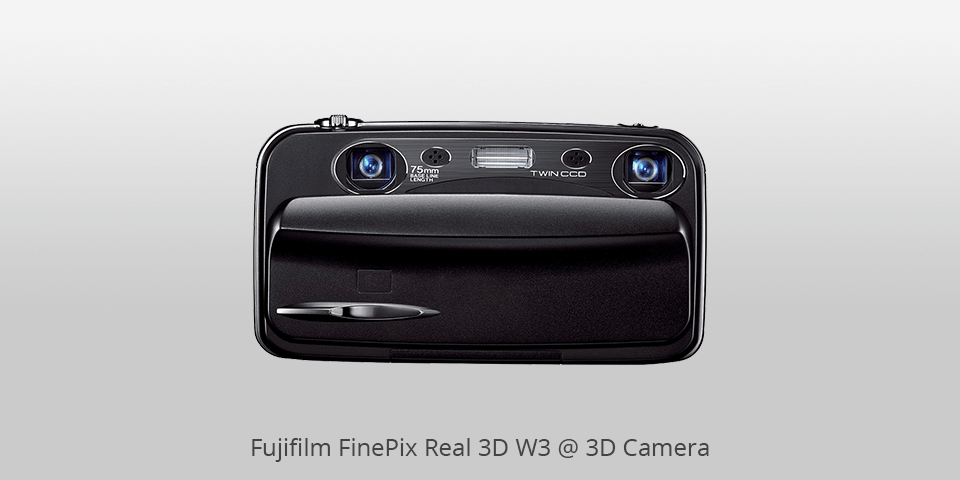
Sensor: 1/2.3" CCD | Resolution: 10MP | Maximum aperture: f/1.8 | Screen type: 3.5" LCD | Video: 4K
One of the main advantages of this 3D video camera is that it can be used right out of the box. The auto-mode will be appreciated by those, who are just starting to use such cameras. It allows selecting the aperture, ISO, flash, and other parameters.
What’s more, when you set a focus, it chooses the best 3D parallax settings. Even if you don’t know yet the significance of certain settings, the camera can adjust them in a way that allows you to record high-quality content.
When it comes to drawbacks, one potential issue is the learning curve when it comes to capturing good 3D images. It might take some time and practice to get the hang of it, so don't expect perfection right off the bat.
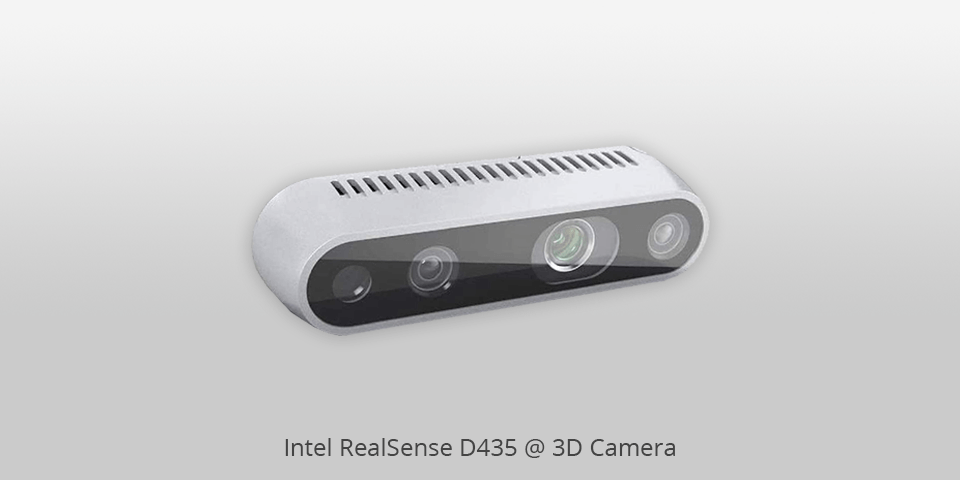
Sensor: 1/2.3" CCD | Resolution: 10MP | Maximum aperture: f/2 | Screen type: 3.9" LCD | Video: 4K
With this camera, you can scan objects and people to create high-resolution 3D models. In the past, this was only possible with expensive and complicated scanners.
Another great feature is the polarization filter. This filter helps reduce the effects of glare from reflections, providing a more usable image. This is especially useful when compared to the same scene without the polarization filter.
However, there are a few disadvantages to consider. One is the rolling shutter distortion, which can affect image quality when capturing moving objects.
| IMAGE | NAME | FEATURES | |
|---|---|---|---|

|
Insta360 PRO 2
OUR CHOICE
|
CHECK PRICE → | |

|
Matterport Pro2
FOR PROS
|
CHECK PRICE → | |

|
KanDao QooCam
BEGINNER
|
CHECK PRICE → |
Whether you're a real estate photographer or just someone curious about the world of 3D, a good camera can make a huge difference. So, when it comes to choosing the best 3D camera, there are a few important things to consider.
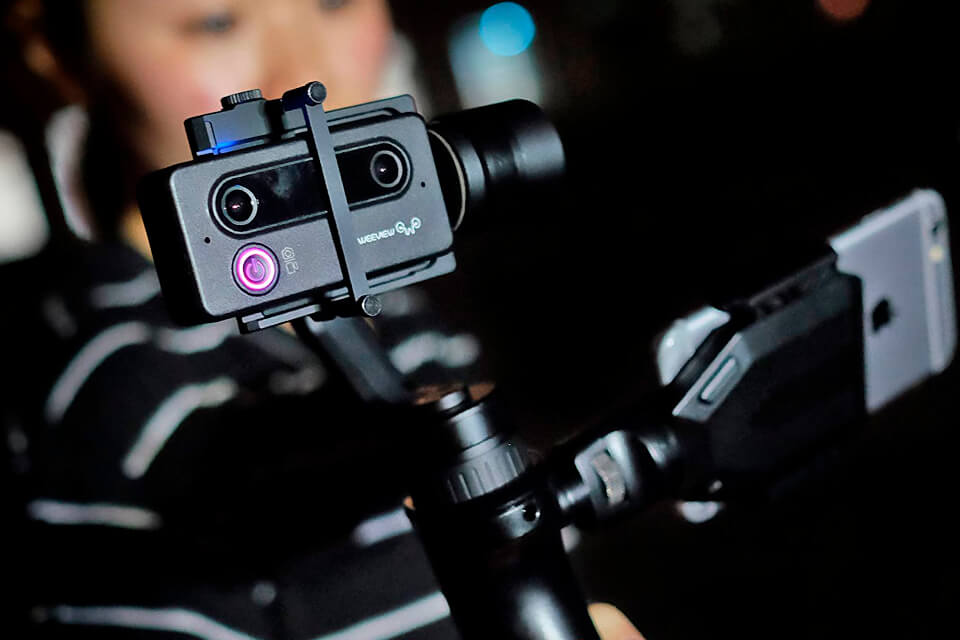
Technical parameters. When you are choosing a 3D image camera, it’s vital to take into account its main specs, namely, its size, working distance of a lens, precision, as well as the supported temperature range and humidity level. The specifications help you understand if a camera meets your purposes.
Depth sensing ability. A good 3D digital camera should be able to capture depth accurately, making your photos and videos more realistic. And hey, if you're into capturing wide areas, look for a camera with a larger field of view. That way, you can capture more detail and even create panoramic shots!
Software and developer kit. If a 3D photo camera doesn’t have any software, you won’t be able to use it properly. Both Software and SDK are significant when it comes to taking footage and editing your videos. Usually, they come for free.
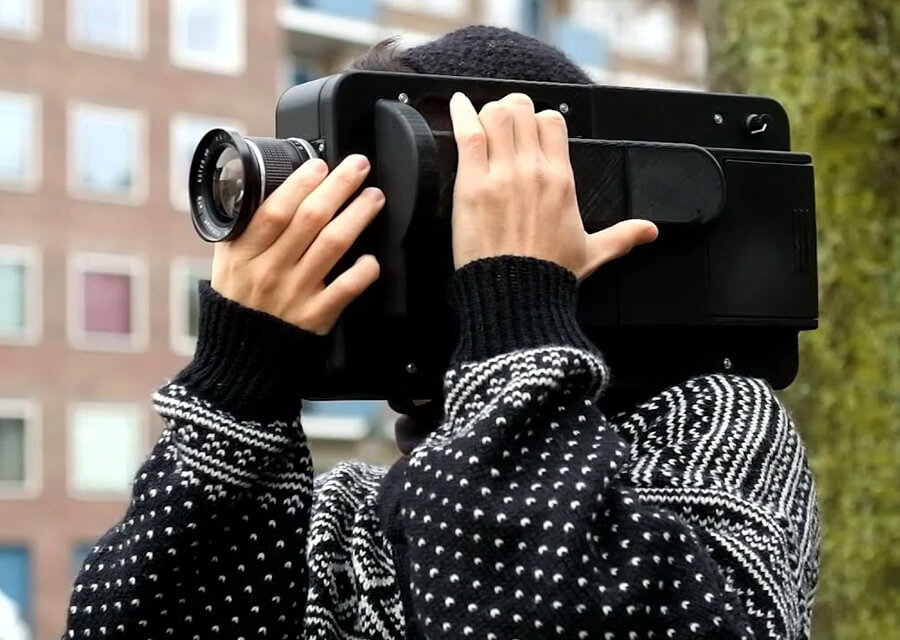
Effectiveness. If you are just learning to create video content, check if a camera has a convenient interface. For instance, an auto-mode allows shooting videos more quickly. If a camera is difficult to use, it might discourage you from creating any content whatsoever.
Price. Now, I know price is always a concern, but remember, the higher the quality, the higher the price tag. But fret not, there are affordable options out there too. For example, the Fujifilm FinePix Real 3D W3 is a great choice.
Product support. Quality of technical support is essential when you face any issue with your camera. Before making a purchase, check if a camera comes with comprehensive tutorials and documentation.
Now, when most people think of a 3D camera, they usually imagine a digital camera with two lenses that capture slightly different angles, allowing you to view the images in 3D with the help of 3D glasses or software. But there's more to it than that. Some advanced 360 cameras use special film or image sensors that provide a deeper level of depth than traditional 2D imaging technologies. These can be found in professional cinematic cameras or high-end digital compact cameras that offer a truly immersive experience for the viewer.
When it comes to 3D photos, the Insta360 PRO 2 delivers the best quality and comes with great specs.
I have reviewed the cameras that come at the prices varying between $300 and $5000.
3D cameras are called omnidirectional, as they allow capturing a 360-degree field of view. For instance, they can be used for taking panoramic videos.